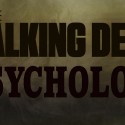Unless you’ve lived under a rock for the past 20 years, you’ve at least heard of Harry Potter. An amazing book series by author J. K. Rowling, Harry Potter tells a tale of a young wizard, whose parents were killed when he was 1 year old by a dark wizard, called Lord Voldemort. At the age of 11 Harry discovers his true wizard identity, despite his abusive aunt and uncle’s attempts to keep this from him, and is able to attend Hogwarts School of Witchcraft and Wizardry, where he learns how to use magic, and meets his two best friends, Ron and Hermione. Over the course of the series, Harry and his friends have frequently had to face monsters and beasts, as well as Lord Voldermort’s followers, and Voldemort himself. Ultimately, it is up to Harry Potter, the chosen one, “the boy who lived,” and his friends to protect the world from Lord Voldemort and his army of dark wizards, who call themselves the Death Eaters.
Continue reading Psychology behind Harry Potter books: Post 1 of 3 (compassion)










